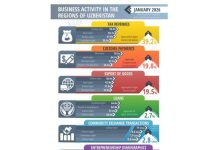By Qamar Bashir
While the world is already grappling with multiple wars—Russia’s relentless campaign in Ukraine, and a raging trade war between the United States and China—a new front of confrontation is brewing, and it may prove to be the most perilous yet. That front lies in Iran’s uranium enrichment program, which has again placed the region, and perhaps the world, on the edge of catastrophic conflict.
The latest round of indirect nuclear negotiations between Iran and the United States, mediated through Oman, ended in a stalemate. The U.S. demanded that Iran completely cease enrichment of uranium, alleging it has already reached 50%—a level perilously close to weapons-grade. President Donald Trump, in his characteristic bluntness, declared such enrichment “unacceptable” and reiterated that bombing Iran’s nuclear sites remains “on the table”—especially if Israel takes the lead.
In response, Iran’s Supreme Leader Ayatollah Ali Khamenei addressed a gender-segregated crowd—women dressed in black abayas, men seated apart—and rejected the U.S. proposal outright. He warned that accepting such terms would render Iran’s nuclear plants useless. “If we give up enrichment, our nuclear plants will be empty shells, reliant on the West for fuel,” he declared. “It would be the ultimate betrayal of our national interests.”
Indeed, despite crippling U.S. and EU sanctions, Iran’s nuclear program has persisted. Tehran insists it only seeks nuclear fuel for energy, not weapons. But the International Atomic Energy Agency (IAEA) released a report indicating enrichment levels dangerously close to weapons-grade, stirring alarms in Washington, Tel Aviv, and beyond.
Yet this time, the geopolitical dynamics are drastically different. A surprising twist emerged when President Vladimir Putin of Russia declared Russia’s intent to join the negotiations, suggesting that excluding Moscow from talks with such far-reaching implications was unacceptable. Putin’s intervention has drastically shifted the equation. What was once a two-player confrontation between Washington and Tehran may now evolve into a global standoff, especially if Moscow pledges to defend Tehran militarily or diplomatically.
If Russia indeed aligns itself with Iran, an Israeli or U.S. strike on Iranian nuclear facilities could be interpreted by Moscow as an attack on its sphere of influence—provoking an unpredictable military response. Further complicating the matter, President Trump recently held a 90-minute phone conversation with Chinese President Xi Jinping. Officially, the talk focused on trade and investment, but Trump took the unusual step of explicitly stating that Iran was “not discussed.” This denial has only fueled speculation that Beijing, too, may be stepping into the shadows of the Iranian nuclear crisis.
If China and Russia jointly back Iran, it would create an unambiguous geopolitical divide: on one side, the U.S. and Israel; on the other, Iran with the diplomatic, economic, and possibly military support of two global powers. Such polarization could render any military action against Iran unthinkable and turn what was once a manageable regional tension into a global crisis with echoes of the Cold War.
The stakes are already high. Iran’s Foreign Minister warned Israel that any attack would be met with massive retaliation, and Khamenei himself vowed that “aggression will be punished proportionally.” Tehran’s position is firm: enrichment is a sovereign right, and the Western demand to halt it—without a concurrent lifting of sanctions—is fundamentally unjust.
It is this asymmetry that lies at the heart of Iran’s frustration. Washington demands denuclearization, but offers no meaningful economic relief in return. As Iranian Foreign Ministry spokesperson Esmaeil Baghaei recently put it: “We must ensure that Iran will effectively benefit economically and that its banking and trade relations with other countries will return to normal.” Without these guarantees, he said, any deal would be one-sided.
Iran now plans to present a counter-proposal, which it calls “reasonable, logical, and balanced.” But the U.S. remains skeptical. Trump told reporters, “They’re just asking for things that you can’t do. They want to keep enrichment. We can’t have enrichment.” The next round of talks is tentatively set for Muscat this Sunday, although both Iranian and American officials have expressed uncertainty over the date.
Amid these tensions, Israel remains a wildcard. It is widely believed to possess nuclear weapons, though it neither confirms nor denies their existence. Iran accuses the West of hypocrisy: turning a blind eye to Israel’s nuclear arsenal while fixating on Iran’s civilian program. Tehran has even hinted at releasing classified Israeli documents allegedly proving Western complicity in bolstering Israel’s nuclear capacity.
This double standard resonates deeply in the Muslim world. If the U.S. and its allies are truly committed to nuclear non-proliferation, why the silence on Israel? Why is Iran—an NPT signatory and a member of the United Nations—denied what others enjoy freely? Iran argues that if nuclear capability is a sovereign right for the U.S., Russia, China, India, Pakistan, France, and even Israel, then denying that right to Iran is an unjustified discrimination rooted in geopolitical favoritism, not international law.
President Trump, for his part, continues to play both hawk and dealmaker. He insists his administration is guided by “common sense,” yet his threats are often maximalist and theatrical. He’s threatened to seize the Panama Canal, annex parts of Canada, and even buy Greenland—none of which materialized. His threat to bomb Iran could be a negotiating tactic to strengthen his hand at the table. But with Iran, such brinkmanship carries a heavier cost.
Iran is not Panama or Greenland. It is a civilization-state with a proud history, stretching back to the Achaemenid Empire, rivaling Rome in antiquity and influence. Its people are fiercely nationalistic and will not capitulate easily—especially not to threats.
So what lies ahead?
The most logical path forward—if we are to avoid catastrophe—is mutual recognition of each nation’s rights and responsibilities. If the West truly wants to avoid proliferation, it must apply the same standards across the board, including Israel. Iran, too, must commit transparently to peaceful nuclear development, with rigorous international inspections.
But any one-sided approach, which demands total Iranian compliance while ignoring Israeli capabilities and refusing to lift economic sanctions, is doomed to fail.
The world today is no longer unipolar. China and Russia are no longer silent spectators. With their involvement, the U.S. no longer enjoys uncontested leverage. This emerging multipolarity means diplomacy, not domination, must guide the next phase of the Iranian nuclear talks.
For the sake of global peace, let better sense prevail. Let every nation uphold international law, act with transparency, and above all, avoid nuclear brinkmanship. Because in a nuclear conflict, there are no winners—only mutual destruction, and irreversible loss for all of humanity.
By Qamar Bashir
Press Secretary to the President (Rtd)
Former Press Minister at the Embassy of Pakistan to France
Former MD, SRBC
Macomb, Michigan, USA

















